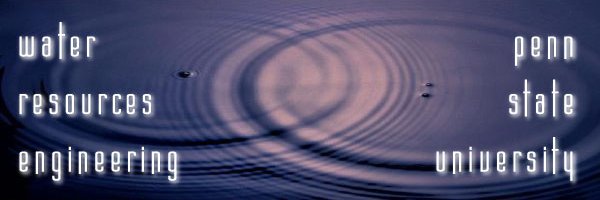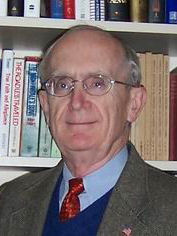

home
people
academics
research
links
| Harleman Lecture -
2005 'Katrina's wake-up call: the role of engineers and scientists in guiding national water policy' Dr. Gerald E. Galloway Glenn L. Martin Institute Professor of Engineering University of Maryland
|
 |
Speaker Biography
Gerry Galloway is Glenn L Martin Institute Professor of Engineering, University of Maryland, College Park and a senior consultant to the Titan Corporation, Reston Virginia. A civil engineer, public administrator and geographer, he also serves as a water resources and flood mitigation consultant to a variety of national and international government organizations. He has served as a Presidential appointee to the Mississippi River Commission and the American Heritage Rivers Advisory Committee. In 1994, he was assigned to the White House to lead a committee in assessing the causes of the 1993 Mississippi River Flood. During a 38-year career in the military he served in various command and staff assignments in Germany, Southeast Asia and the United States, retiring in 1995 as a brigadier general. Prior to joining Titan, he was Secretary of the US Section, International Joint Commission, US and Canada. In 2002 and 2005, he served as General Chairman of National Water Policy Dialogues sponsored by federal water agencies. He holds a Bachelors degree from West Point, a Master's degree in Engineering from Princeton, a Master's in Public Administration from Penn State (Capitol Campus), a Master's in Military Art and Science from the US Army Command and General Staff College and a Ph.D. in Geography from the University of North Carolina (Chapel Hill). In 1998, he was given the Association of State Flood Managers’ Goddard-White Award. In 2001, ASCE named him the Civil Government Engineer of the year. In 2002, ASCE presented him the Presidents’ Award for service to the country. In 2004, he was the recipient of the SAME Academy of Fellows Golden Eagle Award, the Julian Hinds Award of the Environment and Water Resources Institute of ASCE and the US Geological Survey’s John Wesley Powell Award. In 2005 he was elected to the grade of Honorary Diplomate by the American Academy of Water Resource Engineers. He is a member of the National Academy of Engineering and Phi Kappa Phi, national academic honor society.
Abstract
Hurricane Katrina clearly focused the nation’s attention on the fragility of our built environment and, perhaps, limitations on engineering. As it struggled to deal with the aftermath of Katrina and her sister Hurricane, Rita, the country had to deal with the need to immediately respond to the cries of the victims, develop plans for short-term recovery of the communities and their inhabitants and set a direction for the future occupation of the lands devastated by nature’s forces and the compromise of systems designed to protect the people against these forces. We, as a nation, moved forward quickly with the first task, are moving now to assist with short-term recovery, but appear to be stumbling as we attempt to address the long term plans for the region. Katrina has sent us a wake-up call about the need to deal with water resources issues – those related to Katrina and those that that face the nation as a whole.